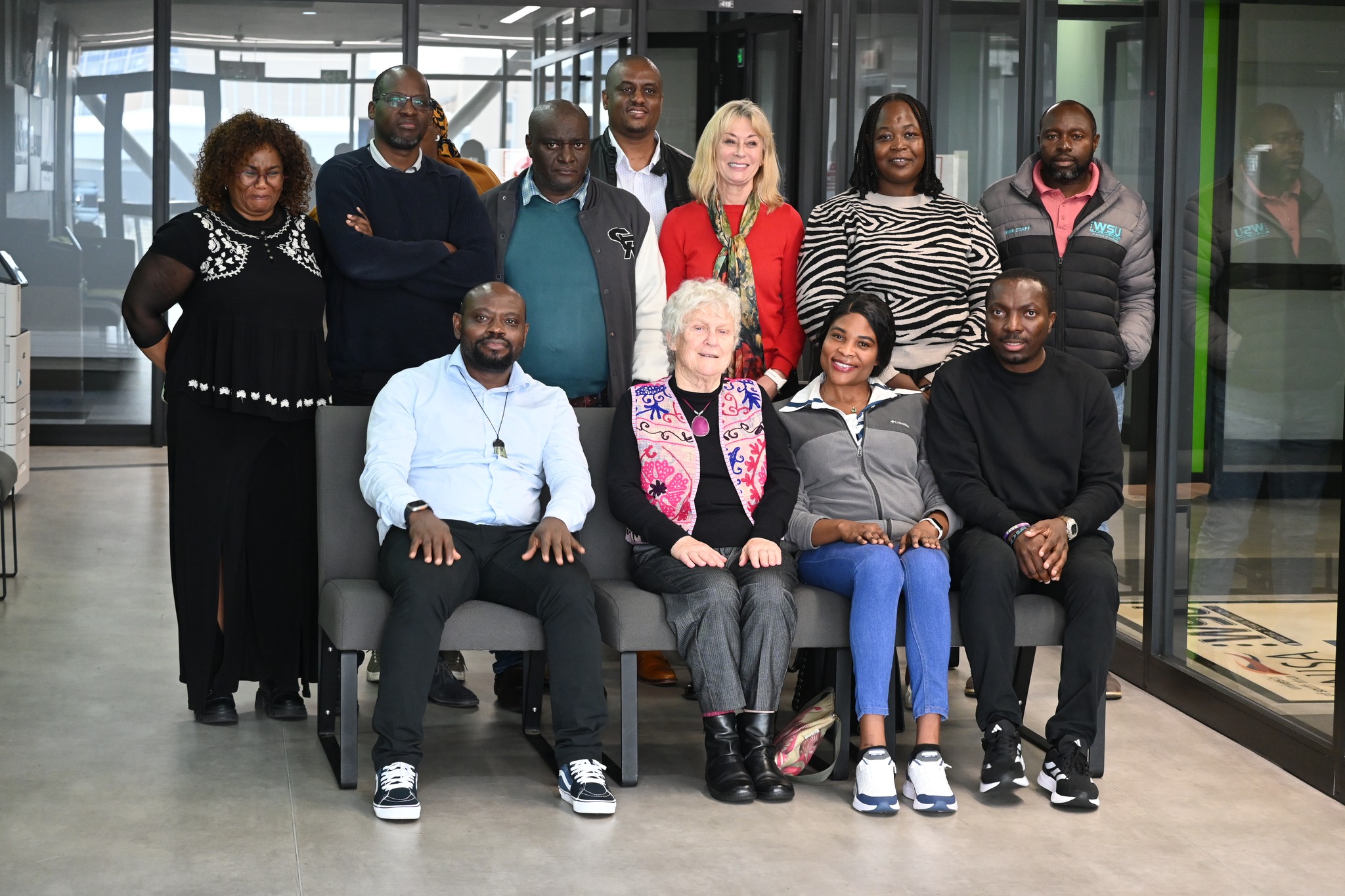VETERAN SCIENTIST TRAINS WSU RESEARCHERS ON NRF RATING SYSTEMS

Veteran academic and researcher, Professor Valerie Corfield imparted her years of research knowledge to a cohort of WSU researchers at an NRF-Rated Researcher Development Session held at the Phyllis Ntantala Collaborative Library in August.
Dubbed “The DNA Detective” in the research community, Corfield is a South African Scientist with ties to some of the country’s top universities, including Stellenbosch University.
Hosted by the Directorate of Research and Innovation (DRI), the full-day programme was dedicated to equipping WSU researchers with the knowledge and tools needed to excel in the National Research Foundation (NRF) rating system.
Corfield unpacked the significance of ratings, the criteria used by review panels, and the upward trajectory for categories such as Y, C, and beyond.
“The most important thing is about the research process. Even if there wasn't NRF rating, it's the same thing. It's to do quality research which is of relevance and has impact both within academia and societally as well.
As many researchers labour to make a mark in their respective fields, Corfield emphasised that obtaining an NRF rating was not simply about publishing but producing impactful research.
She further highlighted that to get funding for their research; researchers had to focus on topics of interest for major funding agencies.
“One must realise that their research has to be relevant to the funding agency. So, you need to understand what they're funding and make sure you're doing research that is relevant to the funder and even if sometimes you have to change the research direction, you're going on to make it more relevant,” she advised.
Over the past four years, the number of NRF-rated researchers at WSU has grown exponentially, from less than ten to over 40.
Deputy Vice-Chancellor for Research and Internationalisation, Professor Nosisi Feza, however, pointed out that the DRI’s endeavours were not concerned with just ratings, but the quality of research outputs.
She further noted that they had developed a research and innovation strategy to ensure that all WSU academics are actively involved in research by 2030, in line with the university’s vision 2030.
“This strategy is based on the fact that we are not performing at the level we are supposed to perform at. It is going to inform the operational lens of the university, the performance system management of the university, where everybody who is an academic at Walter Susumu will know exactly what is expected of them, what contribution they are supposed to get,” said Feza.
Feza further emphasised that research was the cornerstone of any university’s sustainability, and as such, the DRI was steadfast in growing not only in the number of NRF rated researchers, but in the quality of research produced.
“Research and innovation is supposed to be a tool for each and every university to bring about this sustainability. So we as academics, need to perform at a level where we can sustain ourselves as individual academics so that we become assets to the universities that have appointed us and make contributions that will leave legacy for the coming young students and researchers,” Feza concluded.
By Yanga Ziwele
